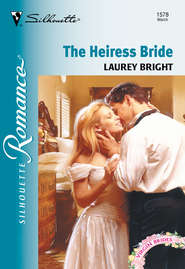По всем вопросам обращайтесь на: info@litportal.ru
(©) 2003-2024.
✖
Dangerous Waters
Автор
Год написания книги
2018
Настройки чтения
Размер шрифта
Высота строк
Поля
Rogan hoped that was so. And that Barney hadn’t known he was dying when some thug—or thugs—left him alone and injured in a dark alley. His hand clenched harder on the beer glass. He’d like to beat the hell out of them in retaliation.
“It was probably pretty quick,” Granger assured him. “The way he’d have liked to go. Without any fuss.”
“Yeah.” Rogan tossed off the remains of his drink, trying to drown an illogical remorse. It wasn’t his fault, or Granger’s, that the old man had lived and died far from his family. They didn’t really owe him much at all, except the genes he’d bequeathed to them both, probably more or less by accident—of which Rogan seemed to have inherited the lion’s share.
He signaled the waiter for another beer. “Does Taff have any descendants?” he asked.
“Possibly dozens—” Granger gave him a rare grin “—scattered all around the Pacific, and none of them legitimate.”
The waiter brought the beer and a fresh glass. Pouring the frothing stuff, Rogan looked up quizzically. “You don’t think the old man fathered a few more children too?”
“I hope not. There’s no mention in the will of any secret siblings.”
Their food arrived and Rogan picked up his knife and fork. Real New Zealand wild pork and gravy with roasted vegetables. His mouth watered. He’d let his brother deal with the legal issues. Granger, after years specializing in corporate law with an international legal firm, had just launched his own practice in Auckland.
The thought of spending his days in an office, no matter how plush, made Rogan’s blood run cold, but apparently Granger enjoyed it.
While Granger refilled his own glass Rogan stole another look at the woman he’d mentally nicknamed Ocean-eyes, and watched as she raised her fork to her mouth and opened perfect lips to slip the morsel in. The faintest ripple disturbed the smooth line of her throat, making him wonder how it would feel if he had his hand there, against the fine skin. Maybe with his thumb in the little groove at the base…
She reached for her wine and drank some, leaving a delicate sheen on her upper lip when she put down the glass and smiled at her companion.
Rogan had a dire urge to kiss the wine from her lips and taste it on the soft, warm mouth. A hot bolt of desire invaded his body, accompanied by a sharp envy of the man on the receiving end of that smile.
Too long without the company of women, he told himself, turning his attention to the pork and sawing at it with unwarranted vigor. The meat was tender and succulent, and he was determined to enjoy it to the exclusion of that other, inconvenient and less easily satisfied appetite.
He knew when Ocean-eyes left the dining room, but didn’t look up. By that time Granger was talking about the funeral arrangements, and out of respect Rogan tried to blot everything else from his mind.
“He wanted his ashes scattered at sea,” Granger said, “from the Sea-Rogue.”
Rogan would have wondered at anything else. “What time is the service?”
“Eleven. Some of his old drinking mates have volunteered to help carry the coffin.”
Rogan grinned. “Do you think they can stay sober until the wake? We are having a wake, aren’t we?”
“It seems to be expected. The proprietor here’s offered me a special rate for the private bar.”
He probably wanted to shield his more refined clientele from a gathering of Barney Broderick’s mates. Most of Barney’s life had been spent on the ocean, but Mokohina was nominally his home port. From a sheltered deep-water cove and small shingly beach the old town straggled up the hills behind the bay. Formerly a mixture of settler cottages and modest villas, solid homes built by retired farmers, and a scattering of classic holiday “baches”—knocked-up boxes with few pretensions to architectural style—the port had been discovered in the last ten years by the owners of expensive oceangoing yachts, and land-based refugees from city life.
Semi-mansions had appeared on the higher slopes. New shops and food outlets aimed at the burgeoning tourist trade joined the modest stores that had served the district for decades. Two motels and a few bed-and-breakfasts catered to the summer influx, and trendy café bars had opened along the waterfront. But the permanent residents and regulars like Barney Broderick remained loyal to the old Imperial, a two-story colonial relic, recently enlarged and refurbished, boasting a creaking veranda on the top floor and kauri wood paneling in the interior.
The new owners had wisely left virtually untouched the well-used public bar. Its scarred, varnished timbers reeking of generations of hard-drinking sailors and fishermen, it was within staggering distance of the old wharves and the Sea-Rogue’s preferred berth when she was in port.
Granger picked up the wine bottle and offered it. Rogan shook his head. After whiskey and beer he didn’t fancy adding wine to the mix. He watched his brother empty the bottle into his glass, then quaff the lot. Granger seldom, if ever, drank to excess, and the wine didn’t seem to have much effect, even when they left the restaurant.
In the lobby they paused by the elaborately carved, polished newel at the foot of the broad stairs. It was too early to go to bed, and the air seemed thick and over-warm.
“Think I’ll go for a walk,” Rogan said.
“Good idea.”
Outside, without discussion they strolled across the road and turned along the curve of the waterfront. Rogan ducked his head under a wide-spreading pohutukawa and skirted a dinghy leaning bow-up against the tree.
The strip of sand gave way to a retaining wall where the water slapped rhythmically at hard gray stones. Several dozen boats lifted and dipped on the restless waves in the bay. A high moon picked out the glimmer of metal here and there, and cast white hulls and masts into relief, while dark ones disappeared in the blackness.
Both men knew where they were headed.
The cheap cafés and fast-food bars, the shops selling local handcrafts, gaudy sarongs and souvenir T-shirts, were replaced by boating and fishing suppliers.
Rounding a curve, they reached a part of the shoreline where the streetlamps were fewer and the vessels tied at the weathered wharves were sturdy, battered working boats instead of glossy, greyhound pleasure craft. Past a warehouse, a marine engine repair shop and a malodorous fish-processing plant, they reached the mooring where the naked masts of the Sea-Rogue loomed against the stars.
Rogan scarcely hesitated before leaping lightly onto the deck below, followed by Granger. The ketch shifted against the wharf, the worn tires hanging from the boat’s side to buffer the hull making soft bumping noises. Rogan went to the stern and ran his fingers along the old-style teak taffrail, paused as he found what he’d been searching for, and traced over the letters carved into the timber.
“Still there?” Granger came to stand beside him.
“Yep.” Rogan had been eleven, Granger twelve, when they’d marked their initials with a pocketknife. They’d expected a blast from their father as soon as he discovered the defacement, but he’d just laughed and clapped them on the back with his big, rough hands.
A loose halyard flapped against the metal mizzen, and Rogan looked up, glancing at the furled sails. He remembered the thrill of the first time he’d been allowed to help hoist them, the wind cracking them free and blowing cool and strong on his face, while the ketch’s bow forged blue-green water into a foamy V, throwing up a fine white spray that showered him with its salty blessing.
He’d fallen in love with the sea there and then. A love that had never left him. The only thing better than sailing was being underwater—a living, breathing part of the ocean itself. Between diving contracts he sometimes chartered a yacht with a buddy, exploring recreational dive sites. Or spent time on a tiny Pacific island where he and other professional divers supported a local dive school, giving financial and practical help.
“Want to go below?” Granger asked.
“Sure.” Tomorrow they’d see their father’s body in the funeral parlor before they carried his coffin to the seamen’s chapel whose doors Barney Broderick had seldom darkened in life. But his beloved Sea-Rogue was where Barney’s spirit lived. This was their real goodbye.
Granger dropped into the cockpit where the mizzen was stepped, a few feet forward of the wheel. He took a key ring from his pocket and opened up the deckhouse to descend the short, steep companionway to the dark interior.
Rogan followed him down. “Have you been aboard since the old man…?”
“No.” Granger flicked a switch but nothing happened. Evidently Barney hadn’t hooked the boat up to shore power. “Hang on a minute.” He fumbled about the galley area behind the companionway.
A small flame flared, and within seconds he’d lit a kerosene lamp hanging from a gimbal. The light flickered, brightened, and steadied. Varnish gleamed on the mahogany interior; a slit-eyed mask from the Philippines leered from one of the few spaces on the bulkheads.
“Guess it hasn’t changed much,” Granger said.
The palm-leaf matting on the floor looked new, but otherwise was identical to what Rogan remembered from years back. So was everything else.
Seats that could serve as narrow berths formed an L at the table, their once-floral coverings faded and thin. A bank of instruments occupied the navigation desk near the companionway. Recessed shelves fitted with fiddle rails to safeguard the contents in rough weather held old volumes that Barney had treasured, along with some paperbacks, nautical knickknacks, and shells and carvings from islands around the Pacific.
In the galley a cutlery drawer sat half open, and a cupboard door hung ajar. Granger said, “The police searched the boat for ID and a contact address.”
He unhooked the lamp and headed toward the stern, pausing at an open door to one side of the short passageway. Taff’s cabin, with colorful pictures torn from National Geographic magazines pinned over the bunk, a battered peaked cap hanging on a hook, a rolled sleeping bag at the end of the mattress, looked as though he’d just stepped out on deck.
Granger moved on to what Barney had liked to call the master’s stateroom in the stern, crammed with more books and a built-in desk. The attached wooden chair had a curved back, the varnish worn pale in the middle, its seat softened by a thin, indented cushion. Rogan had the absurd idea that if he put a hand on it he’d find it still warm.
A marine chart of the Pacific lay open on the desk, with a small pile of tide tables and almanacs. Items of clean clothing were heaped on the relatively roomy berth fitted at the stern, and books occupied the shelves above.
As Rogan followed him inside, Granger turned, lifting the lamp high. The framed picture of their mother still hung over the doorway, where Barney could see it every night before going to sleep.











